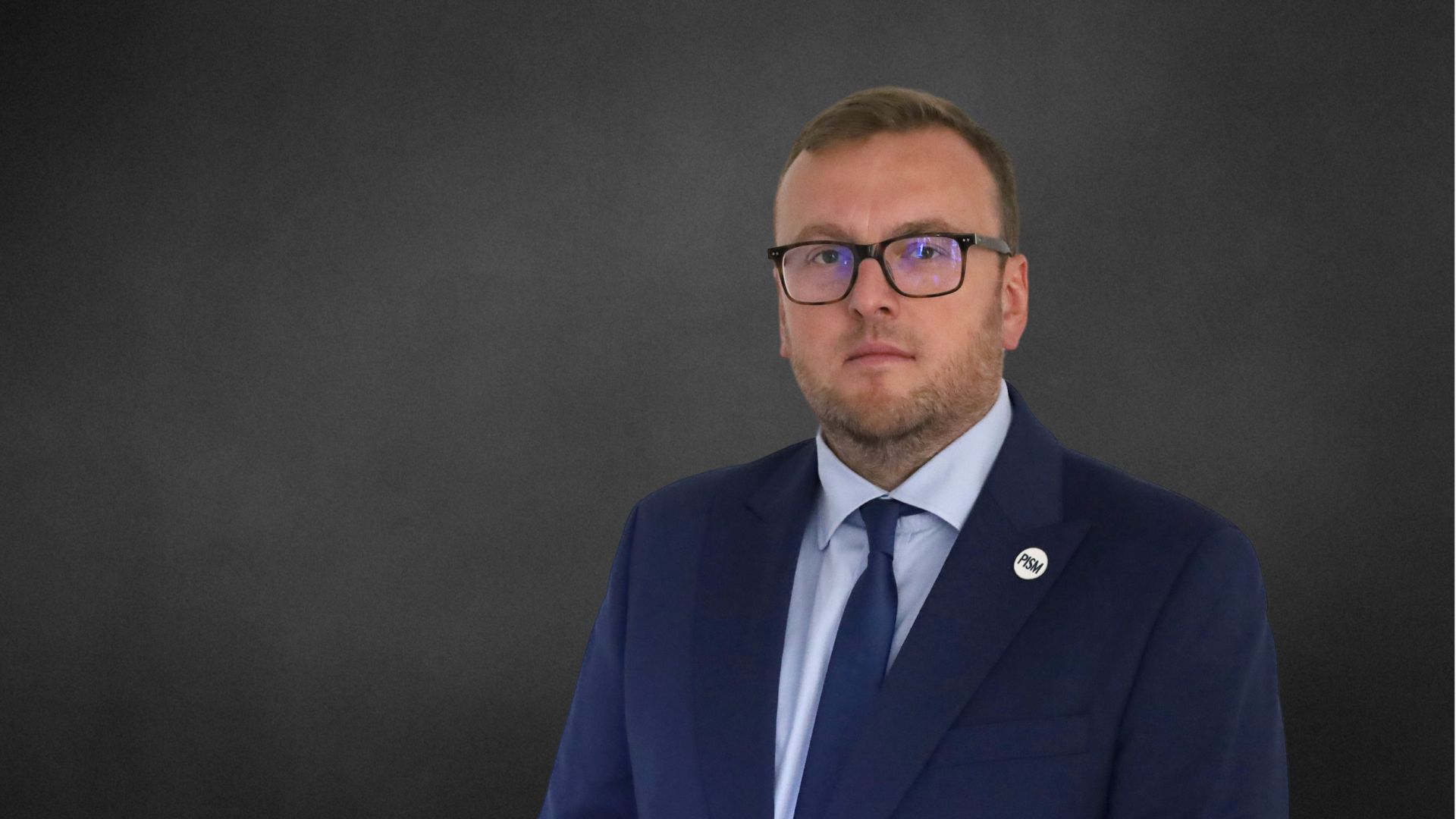Georgian-Ukrainian Relations Deteriorating with Russian Aggression Against Ukraine
Since the full-scale Russian invasion of Ukraine, Georgian-Ukrainian relations have steadily deteriorated. Although integration with the EU and NATO was a common goal for both countries, their foreign policy priorities are now significantly different. The main problem in bilateral relations is Georgia’s deepening pro-Russian stance, which for Ukraine, defending itself against Russia, goes against the very foundation of state policy.
(1).png) IRAKLI GEDENIDZE / Reuters / Forum
IRAKLI GEDENIDZE / Reuters / Forum
The Georgian Authorities on Russian Aggression Against Ukraine
Georgia’s stance towards the Russian aggression against Ukraine is dichotomous. On the one hand, Georgia has condemned the Russian onslaught—in April 2022, it supported in the UN General Assembly the suspension of Russia’s membership of the Human Rights Council, and in May the then-Prime Minister Irakli Garibashvili attended one of the donor conferences for Ukraine. The Georgian authorities have donated humanitarian aid (e.g., medicines and electricity generators) to Ukraine. Georgian President Salome Zurabishvili, in opposition to the government, took a pro-Ukrainian stance on the Russian aggression. She has herself been on several occasions in multilateral meetings with President Volodymyr Zelensky and has held telephone consultations with him.
On the other hand, the ruling Georgian Dream (GD) is adopting an increasingly pro-Russian stance. The government’s limited support for Ukraine and anti-Western and anti-Ukrainian rhetoric stems from fears of a Russian reaction. The Georgian authorities are convinced that if they decided to support Ukraine militarily and join the sanctions imposed on Russia, they would face renewed aggression from Russia. This is why Georgia has not acceded to most of the sanctions (except financial) imposed by the West on Russia. Among other things, it obstructed the departure of Georgian volunteers wishing to fight on the side of Ukraine as part of the Georgian National Legion. It has not handed over any weapons to Ukraine. Unlike most Western countries, the Georgian authorities also chose not to invite Zelensky to speak (even remotely) before the Georgian parliament. Neither the president nor the prime minister of Georgia have visited Ukraine since the invasion.
The anti-Western and anti-Ukrainian rhetoric of the Georgian authorities did not stop even after Georgia received candidate status for EU membership in December 2023. Politicians of the ruling party claimed publicly that the EU demanded that Georgia open a so-called second front (i.e., enter the war against Russia). They also accused NATO of provoking the prolongation of the Russian aggression against Ukraine with its policy. This attitude is also a result of GD’s strategy of building an atmosphere of fear in Georgian society in an attempt to consolidate it around the authorities, ahead of the upcoming parliamentary elections this autumn. The ruling GD argues that in case of an opposition victory, Georgia will be dragged into war with Russia.
Georgian Society’s Attitude to the War
In contrast to the government, Georgian society stands in solidarity with Ukraine. In Tbilisi, spontaneous anti-Russian demonstrations were held in the first months after the Russian invasion of Ukraine, many Ukrainian flags were displayed in the city, and anti-Russian graffiti appeared on walls. From the beginning of the invasion, humanitarian funds were collected through grassroots initiatives. Ukrainian flags also appeared at protests against the introduction of the law on “foreign agents”. Although almost 70% of Georgians consider Russia to be an enemy (Caucasus Research Resource Centre survey from April/May this year) and 56% blame Russia and Vladimir Putin for the war in Ukraine, at the same time a large percentage of Georgians accept the two-track policy of the authorities with some understanding, which can be explained by the fear of renewed war with Russia, while sympathising with Ukraine. As many as half of Georgians support the government’s decision not to join the sanctions. Also, the presence of Russian emigres in Georgia did not provoke major protests. At the same time, as many as 52% of respondents indicated that they expected renewed Russian aggression against their country.
Tensions in Bilateral Relations
The Ukrainian authorities have not hidden their disappointment with Georgia’s attitude. The country was not a priority partner for Ukraine in acquiring armaments due to its limited military capabilities. However, Ukraine had hoped for more international assistance in the wake of the Russian invasion, especially because of the Georgian experience of war with Russia in 2008. Georgia’s ambiguous attitude after the invasion led to the withdrawal of the Ukrainian ambassador from Tbilisi in the first months of the war.
Ukraine has repeatedly accused Georgia of pursuing a pro-Russian policy. The Ukrainian authorities have criticised Georgia for helping Russia circumvent Western sanctions, including through smuggling, which, according to Ukrainian intelligence, took place with the knowledge and consent of Georgian security services. Ukraine expressed concern about the situation in Georgia over its acquiescence to the settlement of Russian migrants who fled the country after Putin’s announcement of partial mobilisation in September 2022. In Ukraine’s view, these were people who left Russia not as a gesture of opposition to the war, but out of fear of mobilisation, including some who may hold anti-Ukrainian attitudes. In addition, the Ukrainian government criticised the Georgian parliament’s adoption of the law on foreign agents as based on the Russian model. It also criticised Georgia for the prison-like conditions of former Georgian President Mikheil Saakashvili, who holds Ukrainian citizenship, and President Zelensky appealed to the Georgian authorities to release him and allow him to be treated for medical ailments abroad. In July 2023, Ukraine imposed sanctions on Georgian airlines after they resumed flights to Russia.
In response, the Georgian authorities have adopted increasingly anti-Ukrainian rhetoric. Georgia regularly accuses Ukraine of becoming involved in its internal affairs, mainly through the actions of former Georgian politicians who have taken Ukrainian citizenship. In September 2023, the Georgian authorities accused Giorgi Lortkipanidze, deputy head of Ukrainian counterintelligence (during Saakashvili’s presidency, Georgia’s deputy interior minister) and the commander of the Georgian National Legion, Mamuka Mamulashvili, of involvement in an alleged coup planned by the Georgian opposition. In February 2024, the Georgian security service blamed Ukraine for transporting explosives through Georgia to Russia to organise terrorist attacks. In addition, in March this year, the Georgian authorities demanded the surrender of the former Saakashvili-era justice minister and prosecutor general of Georgia, Zurab Adeishvili, who is now an advisor to the prosecutor general of Ukraine. He was convicted in Georgia for abuse of power. Ukraine has consistently refused to allow the Georgian prosecutor’s office and courts to hand over Georgian politicians against whom proceedings are pending or who have been sentenced to prison terms in Georgia, considering that their trials are politically motivated.
Conclusions and Perspectives
An improvement in Georgian-Ukrainian relations is not expected in the near future, as the states have adopted contradictory approaches towards Russian imperialism. The Russian invasion of Ukraine has resulted in a Ukrainian society that refuses to make concessions, shows far-reaching mobilisation to defend its state, and consistently seeks deeper integration with the West. Georgia, on the other hand, under the GD government is gradually moving away from building ties with the EU and NATO in favour of rapprochement with Russia and China.
The presence of the Georgian opposition in Ukraine and the activities of the Georgian National Legion, as well as the fate of the imprisoned Saakashvili, remain contentious issues in bilateral relations. Given this, an improvement in bilateral relations would only be possible if the opposition takes power in Georgia. If, on the other hand, the GD retains power after the autumn parliamentary elections, a further deterioration in Georgian-Ukrainian relations is to be expected.
The military and internal situation in Ukraine significantly affects Georgia. As Ukraine deepens its European integration, Georgian society will be more ready to resist pro-Russian changes introduced by GD. Conversely, the potential defeat of Ukraine may, in the long term, weaken social mobilisation and the role of the opposition in Georgia and strengthen the pro-Russian foreign policy direction. Currently, the Georgian government’s attitude is causing disappointment in Ukraine. Georgia is not an important partner for Ukraine in terms of defence capabilities, but the public perception of the internal situation in the country is of symbolic importance and is seen as a victory for Russia’s imperial policy.
The European Union, including Poland, could consider extending support measures to Georgian civil society, which will come under increased pressure once the law on foreign agents comes into force. This would help sustain the mobilisation of its dominant pro-European minded section. It is also important to send a large group of observers in connection with the Georgian parliamentary elections scheduled for 26 October this year to document the electoral process.



